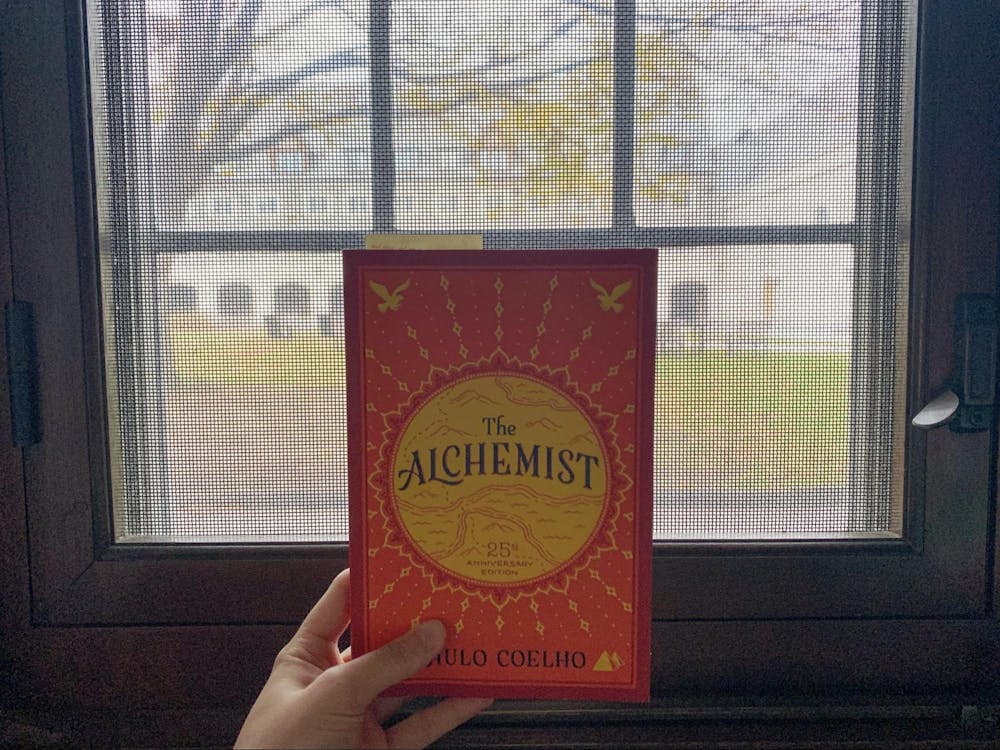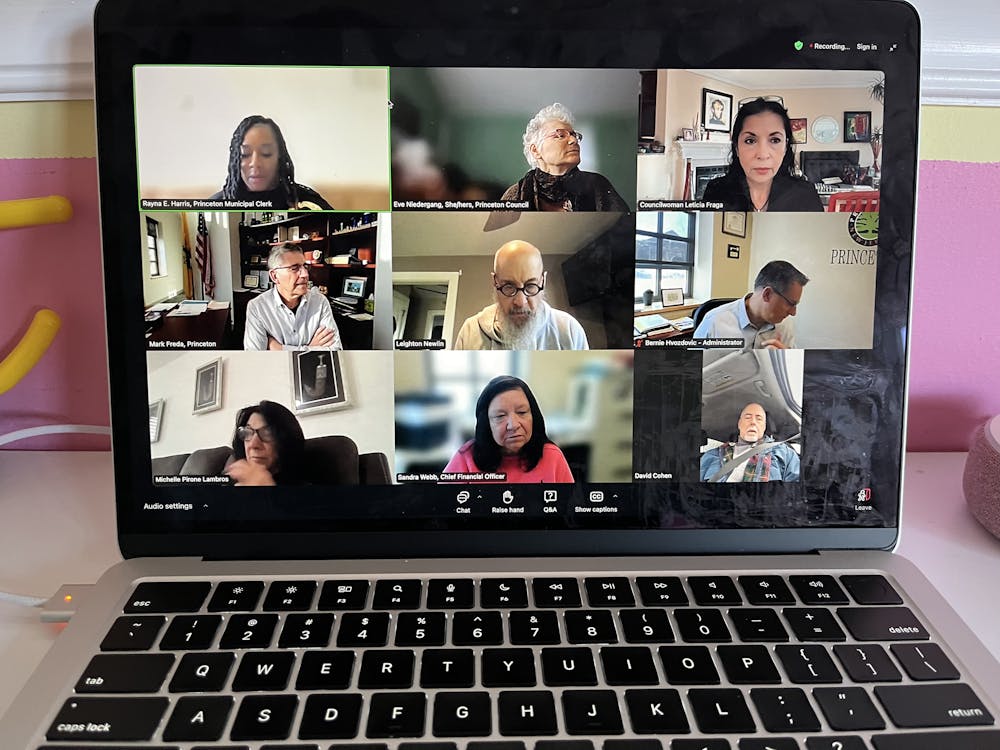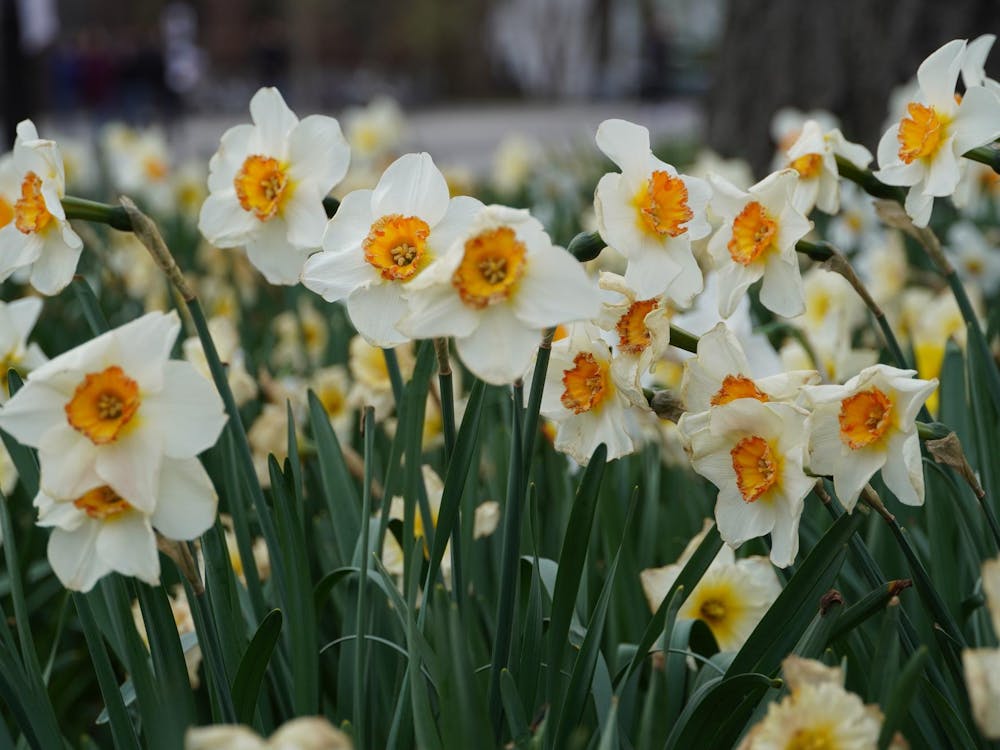The first time I read ‘The Alchemist,’ by Paulo Coelho, was in December 2020. Fresh out of high school, I spent that month grappling with a deceptively simple question: Now what? Despite being a liberating experience for most, life after graduation left me feeling hollow. As I traded in my childhood for a fancy diploma, I realized that I had no routine, no goals, and a great fear of the unknown.
As far as I knew, none of my friends were planning to study abroad like me. As Common Application deadlines loomed around the corner, I often wondered if I was doing the right thing. Everything I had ever known was at home — did I really want to leave it all behind?
‘The Alchemist’ is a simple story. It follows Santiago, a shepherd who dreams of treasure buried at the Egyptian pyramids, and sets out on a journey to find it. Throughout his book, Coelho refers to this dream as a “Personal Legend,” but a Personal Legend is more than just a chest of gold — it is something you’ve always wanted to accomplish, an endgame at which you can finally say “I’ve made it.” Moreover, the Personal Legend is something that we all have, and we have a duty to not just recognize it, but to forgo our fears and chase after it. In fact, the pursuit of a Personal Legend is depicted as the dominant purpose in one’s life; consequently, a life without this self-journey is one that is spent convincing yourself you’re satisfied while subconsciously always wishing for more. Reading this book helped me realize that I longed to live a colorful life — one that is painted by exciting experiences and new places. Moreover, with Common App deadlines looming around the corner, it seemed like the perfect time to have this epiphany. That December, ‘The Alchemist’ led me to discover my Personal Legend, and I knew, as I headed towards it, that I would be returning to this book again and again.
The second time I read ‘The Alchemist’ was in April 2021. Albeit honored to be admitted to an institution like Princeton, my heart was heavy with all that I had to let go of. In my hometown, life was cyclical; I’d go to university, work in the city, have children, and watch them live the same life as mine. Life in Brisbane was like a summer song on repeat — nostalgic and familiar, something you wish you could listen to forever but know that you shouldn’t. On the other hand, Princeton was new territory. I had no friends or family, and no idea what was in store for me.
Despite encountering external complications along the way — like being robbed or held hostage — most of Santiago’s struggles come from within. Like mine, his dilemma is also deceptively simple; his life as a shepherd was comfortable and familiar, yet he longed to experience more than the everyday routine of traveling with his sheep. Seeing Santiago let go of everything he’d ever known to chase after his dream, I felt empowered to do the same. In December, I uncovered my Personal Legend; in April, ‘The Alchemist’ gave me the courage to pursue it.
Although ‘The Alchemist’ tells of a simple tale, it is not oversimplified. Unlike typical adventure stories, in which the protagonist determinedly confronts every obstacle in their way, Coelho demonstrates that Personal Legends are fragile. Although the desire that fuels our Personal Legends is limitless, our ability to pursue them is stifled by our circumstances, such as socioeconomic status, gender, and race.
When Santiago is scammed of all his money, his journey towards his Personal Legend — and with it, his soul — shatters because he no longer can afford to go to Egypt. Here, he surrenders his goal, choosing to earn enough money to buy a flock of sheep and return to his previous lifestyle. Likewise, for many people, childhood dreams are traded for financial stability and practicality. Santiago doesn’t blindly embrace the unknown, nor does he thrive in times of trouble – he struggles. And as the audience, we understand because, in pursuing our own dreams, we also struggle to conquer the unknown.
However, Santiago’s empathetic characterization is not the only thing that makes ‘The Alchemist’ so wonderful. In fact, it is through the book’s side characters that we see that everyone’s Personal Legend is unique, and likewise, how we pursue — or don’t pursue — them is also different. Coelho portrays an Englishman, who is determined to become an alchemist. Unlike Santiago, who learns from seeing the world, the Englishman pursues his Personal Legend through reading. Coelho also shares the story of a crystal merchant, who dreams of traveling to Mecca but does not wish to realize his dream, fearing that his Personal Legend will disappoint him. For him, it is the thought of Mecca that keeps him living happily. Perhaps that is what makes the book most comforting — understanding that there is no Personal Legend that is better than another, nor is there one ideal way to realize it.
The last time I read ‘The Alchemist’ was in October 2021. While my first semester has given me endless new experiences, it has also been riddled with impostor syndrome and homesickness. Reading ‘The Alchemist’ for the third time has taught me that my goals are my own, and there is no need to measure my progress against someone else’s Personal Legend. I’ve also learned that the journey towards my Personal Legend can be turbulent, but ‘The Alchemist’ has pushed me to trust my intuition in times of uncertainty.
Arguably, one of Coelho’s most notable lines (and one of my favorites) is, “When you want something, all the universe conspires in helping you achieve it.” Specifically, Coelho explores the concept of “omens,” which he defines as signals that guide one to their destiny. For example, when Santiago is about to give up and return to being a shepherd, the Urim and Thummim stones — which were gifted to him by a king to guide him to his treasure — fall from his pocket; this omen reminds Santiago of his Personal Legend, prompting him to continue pursuing his journey. While omens — both good and bad — can seem small or fleeting, they all push us towards something greater. Likewise, in my own life, I have learned to fret less about details and to appreciate the small joys — such as studying with friends or eating Whitman’s godly red velvet cake — that reassure me that I am on the right path.
Upon graduating high school, my teacher gifted me a copy of ‘The Alchemist.’ Inside the cover, she wrote the following note: “From this book, I want you to learn to dream big, set unrealistic goals because I know you can achieve them.” Although this copy remains nestled in the corner of my childhood bedroom, it has brought me 9,593 miles across the Pacific in pursuit of my own treasure.
Kerrie Liang is an Assistant Editor for The Prospect at the ‘Prince.’ She can be reached at kerrie.liang@princeton.edu, or on Instagram at @kerrie.liang.

Self essays at The Prospect give our writers and guest contributors the opportunity to share their perspectives. This essay reflects the views and lived experiences of the author. If you would like to submit a Self essay, contact us at prospect@dailyprincetonian.com.









